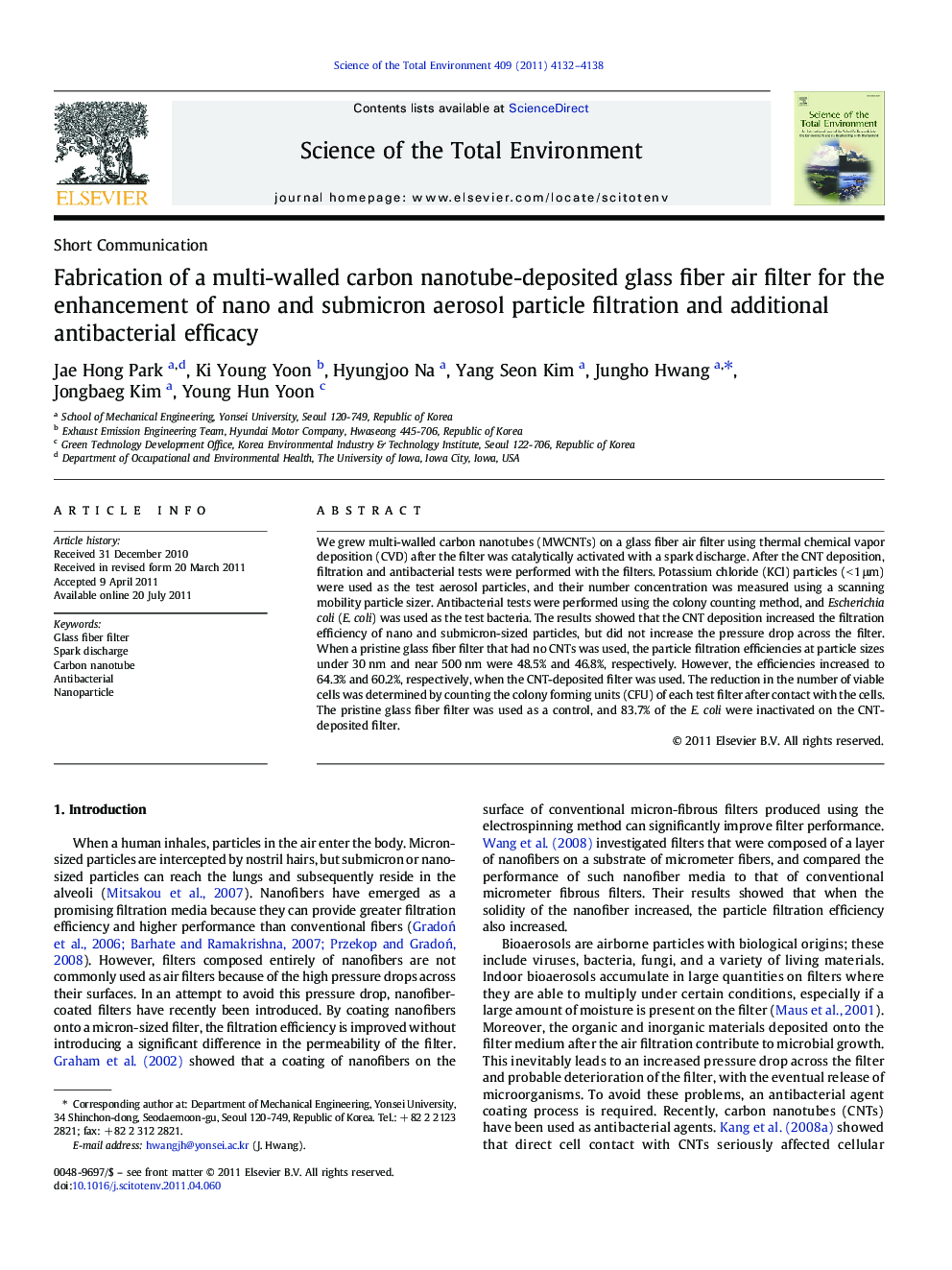| Article ID | Journal | Published Year | Pages | File Type |
|---|---|---|---|---|
| 4430070 | Science of The Total Environment | 2011 | 7 Pages |
We grew multi-walled carbon nanotubes (MWCNTs) on a glass fiber air filter using thermal chemical vapor deposition (CVD) after the filter was catalytically activated with a spark discharge. After the CNT deposition, filtration and antibacterial tests were performed with the filters. Potassium chloride (KCl) particles (< 1 μm) were used as the test aerosol particles, and their number concentration was measured using a scanning mobility particle sizer. Antibacterial tests were performed using the colony counting method, and Escherichia coli (E. coli) was used as the test bacteria. The results showed that the CNT deposition increased the filtration efficiency of nano and submicron-sized particles, but did not increase the pressure drop across the filter. When a pristine glass fiber filter that had no CNTs was used, the particle filtration efficiencies at particle sizes under 30 nm and near 500 nm were 48.5% and 46.8%, respectively. However, the efficiencies increased to 64.3% and 60.2%, respectively, when the CNT-deposited filter was used. The reduction in the number of viable cells was determined by counting the colony forming units (CFU) of each test filter after contact with the cells. The pristine glass fiber filter was used as a control, and 83.7% of the E. coli were inactivated on the CNT-deposited filter.
► Glass fiber filters were activated with Fe catalyst particles using a spark method. ► Multi-walled CNT fibers were then grown on the activated spots using thermal CVD. ► Using these filters, the filtration and antibacterial efficiencies were tested. ► The particle filtration efficiency was increased by the CNT deposition. ► The antibacterial performance of the CNT filter was observed.
